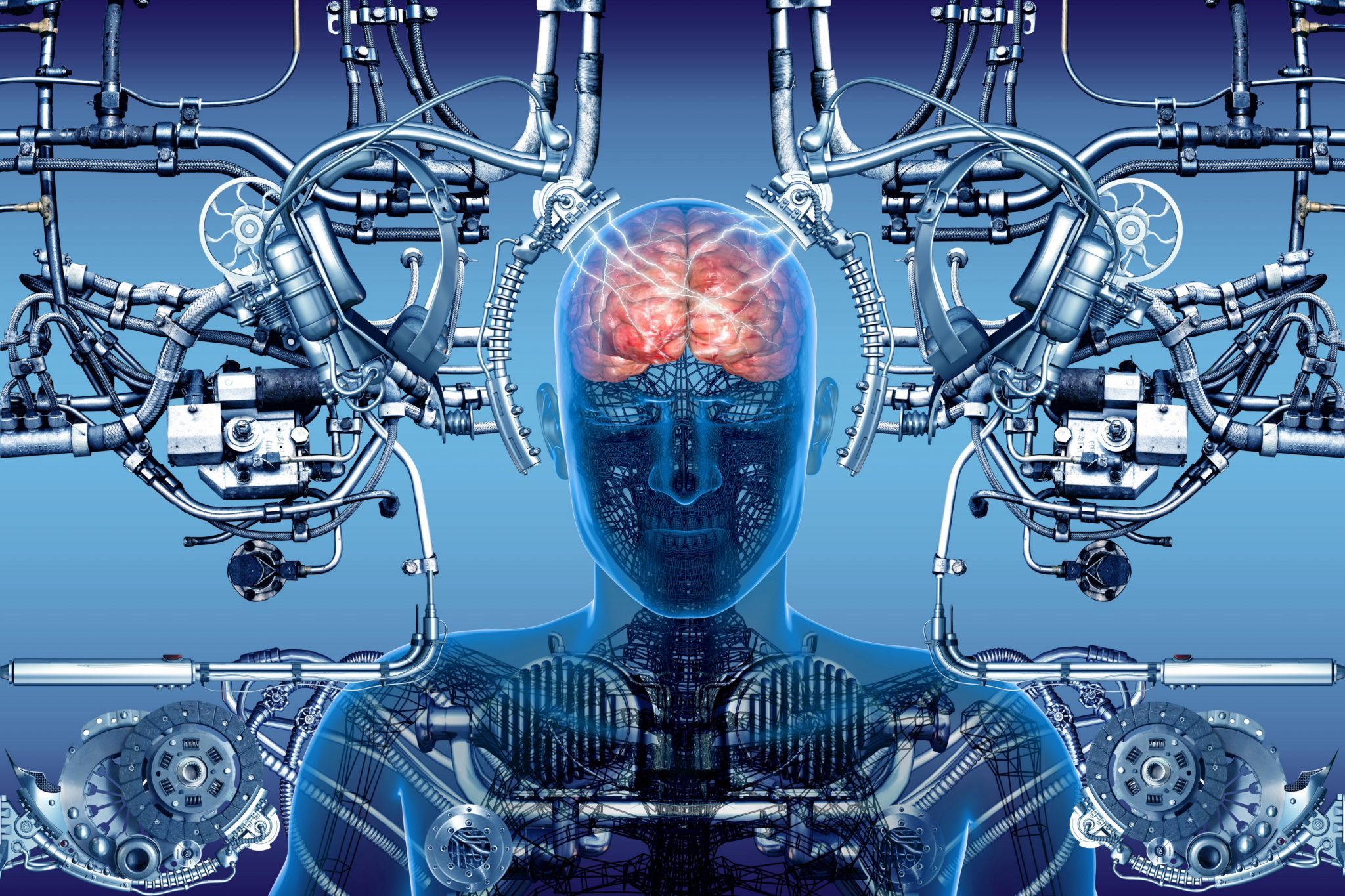
Brain-Computer Interfaces: Unlocking Potential with Caution
Brain-computer interfaces (BCIs) represent a groundbreaking frontier in neurotechnology, enabling unprecedented communication between the human brain and computers. Pioneered by companies like Neuralink, these innovations involve brain chip implants that can decode neural signals, allowing users to control devices directly through their thoughts. The potential applications of mind control technology are immense, ranging from aiding individuals with disabilities in operating prosthetic limbs to enhancing cognitive functions and communication abilities. Additionally, the growing interest in BCI applications hints at a future where thought translation becomes commonplace, potentially transforming our interaction with machines. However, as advancements unfold, ethical concerns about mental privacy and consent echo historical warnings from past experiments in mind control, emphasizing the need for careful consideration in this rapidly developing field.
The exploration of brain-machine interfaces, often referred to as neural prosthetics or cognitive enhancement systems, has sparked significant interest across various sectors of society. These sophisticated systems allow for direct brain interaction with electronic devices, promising revolutionary changes in how we understand and utilize brain signals. Innovations in brain-chip technology open doors to myriad opportunities, from rehabilitation for those with severe motor impairments to enhancing the overall human experience through direct neural communication. As we delve deeper into the realm of neurotechnology advancements, it becomes crucial to examine both the benefits and the potential ramifications of such powerful tools. This dialogue around brain-computer interaction is essential as we navigate the complexities of integrating these technologies responsibly into our lives.
The Rise of Brain-Computer Interfaces: A New Era in Neurotechnology
Brain-computer interfaces (BCIs) have emerged as a revolutionary technology, particularly in the realm of neurotechnology advancements. Companies like Neuralink are paving the way for brain chip implants that enable individuals to control devices with mere thoughts. For instance, Noland Arbaugh, the inaugural recipient of a Neuralink implant, has demonstrated remarkable abilities in operating a computer mouse and even engaging in online chess, providing a glimpse into the future capabilities of BCIs. The potential applications for this technology are vast, offering opportunities to assist those with paralysis, stroke victims, and others facing debilitating conditions.
However, the promise of BCIs extends beyond healthcare. With a projected market value nearing $400 billion in the U.S., the implications for various industries are profound. The technology may not only allow for enhanced communication and control over devices but also facilitate a new level of interaction between humans and machines. As neurotechnology progresses, there are exciting prospects of integrating BCIs into daily life, affecting everything from entertainment to education and even workplace efficiency.
The Ethical Implications of Mind Control Technology
The rapid advancement of mind control technology, particularly through BCIs, raises crucial ethical questions that demand thorough examination. Referring to historical precedents, researchers warn against the potential misuse of such powerful neurotechnology. As highlighted by Lukas Meier, the specter of past experiments in psychological manipulation and mind control during the Cold War serves as a stark reminder of the dangers inherent in these advancements. The idea of controlling or altering human behavior without consent echoes the unsettling reality of past transgressions committed in the name of science.
Moreover, the casual use of neurotechnology to monitor and influence cognitive processes could lead to significant infringements on personal autonomy and mental privacy. This concern is not just theoretical; the alarming reports of brainwave monitoring in educational settings underscore the delicate balance between using technology to enhance learning and infringing upon a child’s right to mental independence. As society progresses into uncharted territories with BCIs, it becomes imperative to develop robust ethical guidelines to navigate the complexities of mind control technology.
Neuralink: Leading the Charge in Neurotechnology Advancements
Neuralink has become synonymous with breakthroughs in neurotechnology, spearheading innovations that harness brain-computer interfaces to enhance cognitive and motor functions. Its pioneering initiatives, such as the brain chip implant showcased in clinical trials, represent a potential turning point for individuals with severe disabilities. Beyond the immediate benefits of allowing paralyzed patients to control digital devices effortlessly, Neuralink envisions enhancing human capabilities, thereby opening up new avenues for interaction with technology.
However, with great power comes great responsibility. The company is acutely aware of the ethical implications surrounding its technology and is actively engaging in discussions about ensuring safe and beneficial implementations. The balance of allowing people to regain control over their lives while safeguarding against the potential for misuse remains a significant challenge that lies ahead for both Neuralink and the wider neurotechnology sector.
Future Applications of Brain-Computer Interfaces
The future applications of brain-computer interfaces (BCIs) are diverse and far-reaching, suggesting a paradigm shift in how humans interact with technology. Initially designed to assist individuals with physical disabilities, BCIs have potential functions that include opening doors to a new world of communication for those who cannot speak. Future applications may even involve translating thoughts into text or enhancing virtual reality experiences, providing immersive environments powered directly by brain activity.
As research progresses, the integration of BCIs into everyday devices could transform numerous sectors, including medicine, education, and entertainment. With the potential for BCIs to provide real-time feedback on cognitive states, educational outcomes could improve significantly, tailoring experiences to individual learning needs. In the entertainment sector, brain-controlled gaming systems could emerge, creating fully immersive experiences that respond intuitively to the player’s mental engagement.
Understanding the Risks Associated with BCI Technology
While the potential benefits of brain-computer interfaces (BCIs) are exciting, it is crucial to recognize the associated risks. As highlighted by experts, the very technologies designed to restore capabilities can inadvertently interfere with fundamental aspects of personal autonomy. For instance, the unintended behavioral changes observed in some patients undergoing deep brain stimulation underscore the unpredictable nature of manipulating brain functions. Such outcomes raise important questions about safety, predictability, and the need for further research.
Moreover, the risk of misuse of BCI technology is a significant concern. Historical parallels to past unethical experiments serve as a potent reminder that the power to influence human behavior can be dangerously exploited. Establishing stringent regulatory frameworks and fostering collaboration among interdisciplinary stakeholders in ethics, science, and technology will be crucial to mitigate these risks and ensure that advancements in neurotechnology result in positive societal impacts.
The Historical Context of Mind Control and Its Relevance Today
Understanding the historical context of mind control provides invaluable insight into contemporary discussions surrounding brain-computer interfaces (BCIs). The CIA’s MKULTRA program during the Cold War illustrates a cautionary tale about the lengths to which governments may go in attempts to manipulate human consciousness. The consequences of such unethical practices remind us of the delicate balance required when pursuing advancements that intersect with human rights and dignity.
In today’s landscape of emerging neurotechnologies, it is essential to reflect on these historical lessons to prevent a recurrence of similar ethical breaches. While BCIs hold the promise of improving lives, it is imperative to learn from past mistakes and diligently safeguard against any intentions—whether by state actors or corporations—to exploit these technologies for control and manipulation. Ensuring that human rights are at the forefront of neurotechnology advancements will be paramount.
The Role of Regulation in BCI Development
As brain-computer interfaces (BCIs) become increasingly mainstream, the role of regulation in their development and deployment cannot be overstated. Policymakers and regulatory bodies must establish comprehensive frameworks that address the myriad ethical, legal, and social implications of these technologies. The aim should be to balance fostering innovation while ensuring that public safety and individual rights are protected.
The need for regulation is accentuated by the possible misuse of BCIs in various domains, from healthcare to education. Clear guidelines should govern the use of such technologies, particularly concerning informed consent, privacy, and potential coercion. As we venture into this uncertain future shaped by neurotechnology advancements, establishing a robust regulatory environment is not merely beneficial—it is essential for preserving trust and safety in these groundbreaking innovations.
Ethical Considerations in Developing BCI Technologies
Developing brain-computer interfaces (BCIs) necessitates careful ethical considerations that cannot be overlooked. As these technologies move closer to mainstream acceptance, the potential for ethical dilemmas expands. Issues such as mental privacy, informed consent, and the potential for coercive applications must be rigorously addressed to safeguard individual rights and foster public trust in neurotechnology advancements.
Particularly concerning is the risk of unintentionally altering behaviors through BCI technology, as well as the historical lessons from past abuses of similar scientific endeavors. Establishing ethical guidelines and engaging in interdisciplinary dialogue among scientists, ethicists, and regulatory stakeholders will be vital in shaping responsible development. Without a solid ethical framework, the promise of BCIs could easily become overshadowed by the potential ramifications of misuse.
BCI Applications in Medicine: Opportunities and Challenges
The application of brain-computer interfaces (BCIs) in medicine opens up exciting possibilities for treating various neurological conditions. With the ability to translate brain signals into actionable commands, BCIs offer hope for individuals suffering from conditions such as ALS, stroke, and spinal cord injuries. This technology facilitates innovative rehabilitation methods, allowing patients to regain lost functionalities and improve their quality of life.
However, while the medical benefits are vast, challenges remain. The complexity of individual brain wiring means that personalized approaches will be necessary, increasing the cost and time for developing effective treatments. As the technology progresses, collaboration across the medical, technological, and regulatory fields will be essential to ensure that these opportunities are realized while minimizing risks and addressing ethical concerns.
Frequently Asked Questions
What are brain-computer interfaces and how do they work?
Brain-computer interfaces (BCIs) are advanced neurotechnology systems that create direct communication pathways between the human brain and external devices. By interpreting brain signals, BCIs enable individuals, particularly those with disabilities, to control computers or prosthetic limbs using their thoughts alone. This innovative technology makes it possible to translate neural activity into actionable commands.
How does Neuralink contribute to advancements in brain-computer interface technology?
Neuralink, founded by Elon Musk, focuses on developing brain chip implants that enhance the capabilities of brain-computer interfaces. Their technology aims to restore mobility to individuals with paralysis by allowing them to control devices with their minds. Neuralink’s advancements demonstrate the vast potential of BCIs to improve the quality of life for individuals with neurological conditions.
What are the potential applications of BCI technology in daily life?
BCI applications have a wide range of potential impacts on everyday life. These include enabling individuals with motor impairments to interact with computers, control smart home devices, and operate prosthetic limbs with thought control. Additionally, BCIs may help in fields such as rehabilitation, communication, and even entertainment, allowing users to engage with games or virtual environments through neural signals.
What ethical concerns are associated with brain-computer interfaces?
The development of brain-computer interfaces raises significant ethical issues, including concerns about consent, mental privacy, and potential misuse. Historical references, such as the CIA’s MKULTRA project, highlight the risks of psychological manipulation and control. As BCI technology evolves, it is vital to ensure that ethical standards are established to protect individuals from exploitation and maintain their autonomy.
Can brain-computer interfaces really lead to mind control technology?
While brain-computer interfaces provide powerful tools for interpreting and interacting with brain signals, concerns about mind control technology stem from historical precedents and potential misuse. Current BCI developments focus on assisting individuals rather than exerting control, but the possibility of unintended behavioral influence raises important questions about ethical safeguards that need to be in place as this technology advances.
What is the market potential for brain-computer interfaces in the future?
The market potential for brain-computer interfaces is projected to reach around $400 billion in the U.S. alone, driven by the growing prevalence of neurological conditions such as spinal cord injuries and strokes. As neurotechnology advancements continue, the demand for BCIs is expected to rise, offering innovative solutions that improve the lives of individuals with various disabilities.
What were the dark historical precedents for mind control linked to neurotechnology?
Dark historical precedents for mind control, such as the CIA’s MKULTRA program during the Cold War, highlight the risks associated with manipulating human behavior. MKULTRA involved unethical experiments aimed at controlling thoughts and actions. These historical lessons serve as a caution for current neurotechnology advancements, emphasizing the importance of transparency and ethical considerations in the development of brain-computer interfaces.
How do neurotechnology advancements impact the future of communication for people with disabilities?
Neurotechnology advancements, particularly through brain-computer interfaces, promise to revolutionize communication for people with disabilities. By translating neural signals into speech or text, BCIs can enable individuals with severe communication impairments to express their thoughts and needs effectively. This technology could fundamentally change how individuals interact with others and participate in society.
What are the risks associated with deep brain stimulation in BCIs?
Deep brain stimulation, a technique related to brain-computer interfaces, carries risks such as unintended behavioral changes or neurological side effects. Research has shown that some patients may experience manic symptoms or other behavioral alterations due to stimulation. Understanding these risks is essential for developing safe and effective BCIs and ensuring that patients are fully informed about potential outcomes.
| Key Points | Details |
|---|---|
| Brain-Computer Interfaces (BCIs) | Neuralink’s brain chip implant allows paralyzed individuals to control devices. |
| Market Potential | BCIs could represent a $400 billion market in the U.S. due to various disabilities. |
| Historical Context | The paper draws parallels between modern BCIs and past psychological manipulation efforts like MKULTRA. |
| Ethical Concerns | Issues of consent, mental privacy, and potential for misuse are highlighted. |
| Behavioral Influence | Research shows BCIs may inadvertently alter behavior, raising ethical questions. |
| Support for BCI Development | Despite concerns, there’s support for advancing BCIs to stay ahead of global competition. |
Summary
Brain-computer interfaces (BCIs) represent a revolutionary advancement in technology, enabling individuals with disabilities to interact with computers and assistive devices. While the potential benefits are immense, the chilling historical backdrop highlighted by the Carr Center for Human Rights emphasizes the necessity for careful consideration of ethical implications. The development of BCIs could lead to significant breakthroughs, but also raises critical questions about consent and mental privacy that must be addressed to prevent misuse of this technology. As society moves forward with BCIs, it is imperative to learn from the past to safeguard against potential dangers while maximizing the positive impacts of this innovative field.


